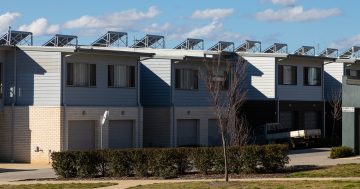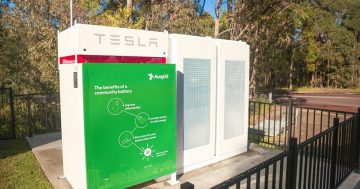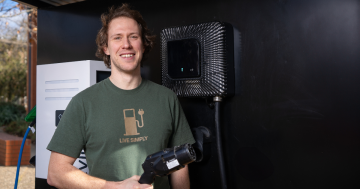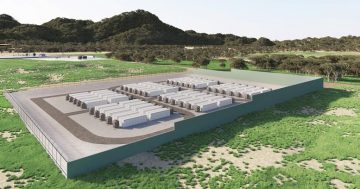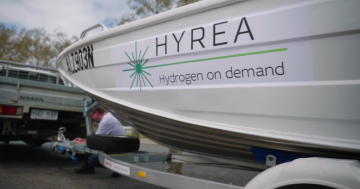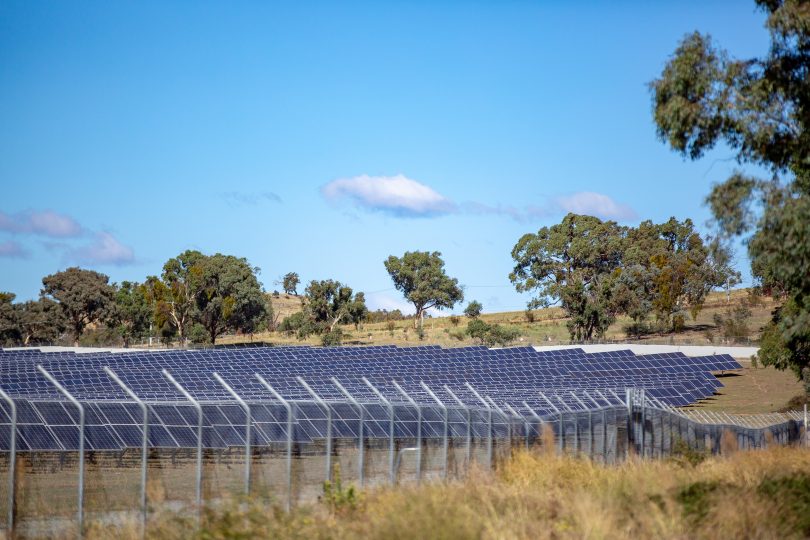
Mugga Lane Solar Park. Can the ACT be a national renewable energy hub? Photo: File.
The possibilities for developing the ACT into a renewable energy research powerhouse will be the subject of a new Legislative Assembly committee inquiry.
The Standing Committee on Environment, Climate Change and Biodiversity wants to hear from researchers, businesses, organisations and government on opportunities and barriers to making the ACT a place for world-leading clean energy research and innovation.
Committee Chair, Labor MLA Marisa Paterson, said the ACT had already been at the forefront of green energy and the committee wanted to see what was required to consolidate the Territory as a renewables stronghold.
“The ACT has been a leader in this technology and was the first major Australian jurisdiction to be 100 per cent powered by renewable energy,” Dr Paterson said.
“We want to look ahead to ensure that the ACT can become a global exporter of renewable energy expertise.
“We want to hear about ways to demonstrate leadership and innovation in this sector, how to connect people and organisations to spark ideas and ways to promote the ACT as the home of clean energy.”
Daily Digest
The terms of reference cover a range of topics from research and development to policy settings to the financing of projects.
The committee wants to hear how the ACT could become a national hub for renewable energy technologies and new industries, including zero-emissions vehicles.
It will look at battery storage, including neighbourhood-scale batteries, which provide an alternative to individual households buying their own battery storage system, improving the level of clean energy supply in the grid, and vehicle-to-grid technologies, where electric vehicles can feed power back into the electricity grid.
It will also investigate how renewable energy projects could be innovatively financed and managed in the ACT.
The committee is keen to see greater collaboration and innovation among stakeholders and wants to know what strategies would overcome current limitations.
The effectiveness of the administration and funding of ACT Government policies and regulations to support renewable energy, climate action, and emissions reduction will also be under scrutiny.
The government already has a climate change strategy and is committed to net zero emissions by 2025. It has a range of policies to encourage the take-up of renewable energy and electric vehicles through the Sustainable Household Scheme.
It is also in the process of converting its car and bus fleet to zero-emission vehicles and building big batteries to help stabilise the grid and provide back-up power in emergencies.
Submissions can be made by email to LACommitteeECCB@parliament.act.gov.au until Thursday, 29 April 2021.












